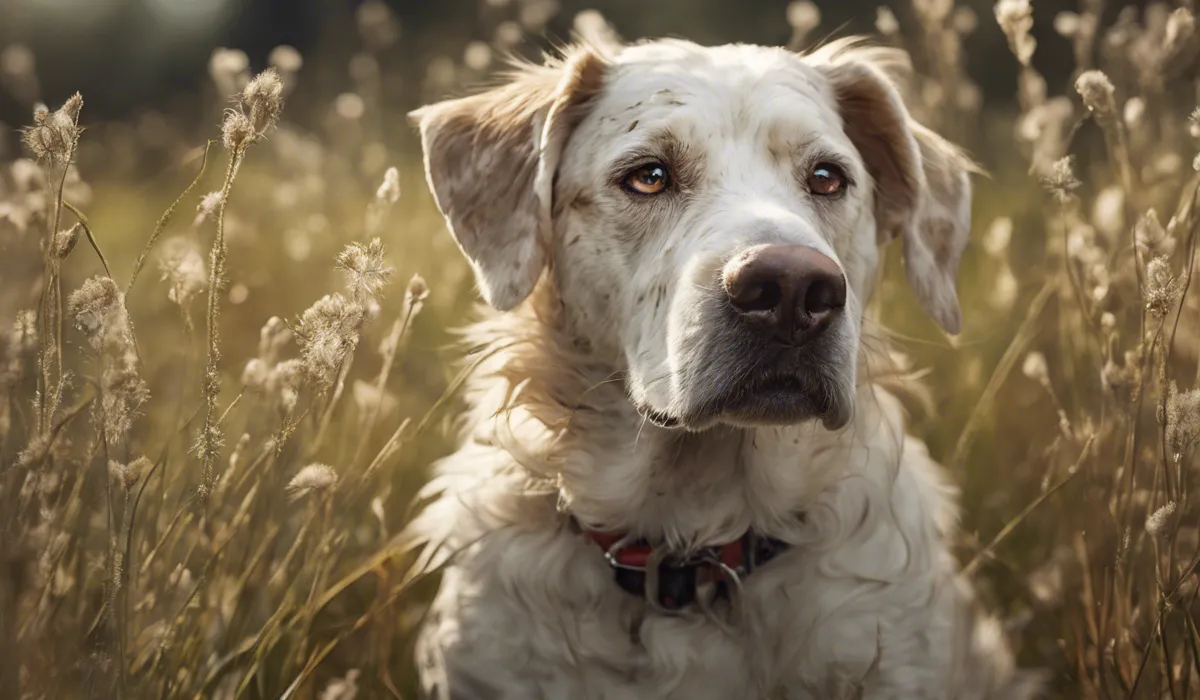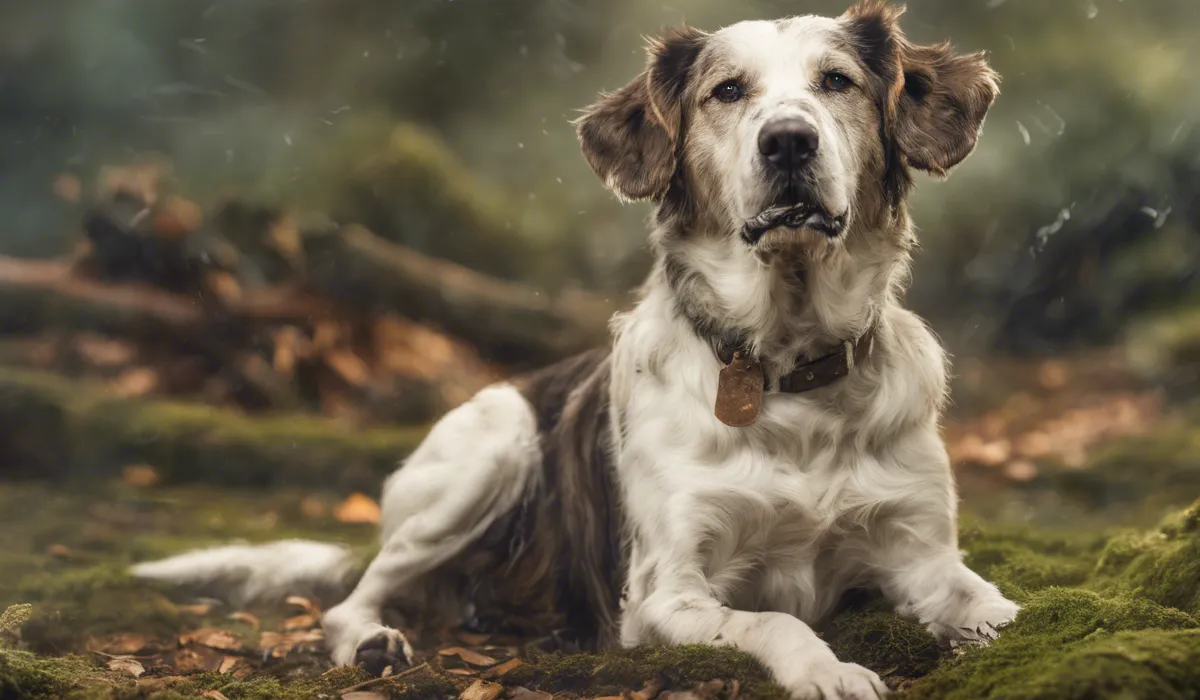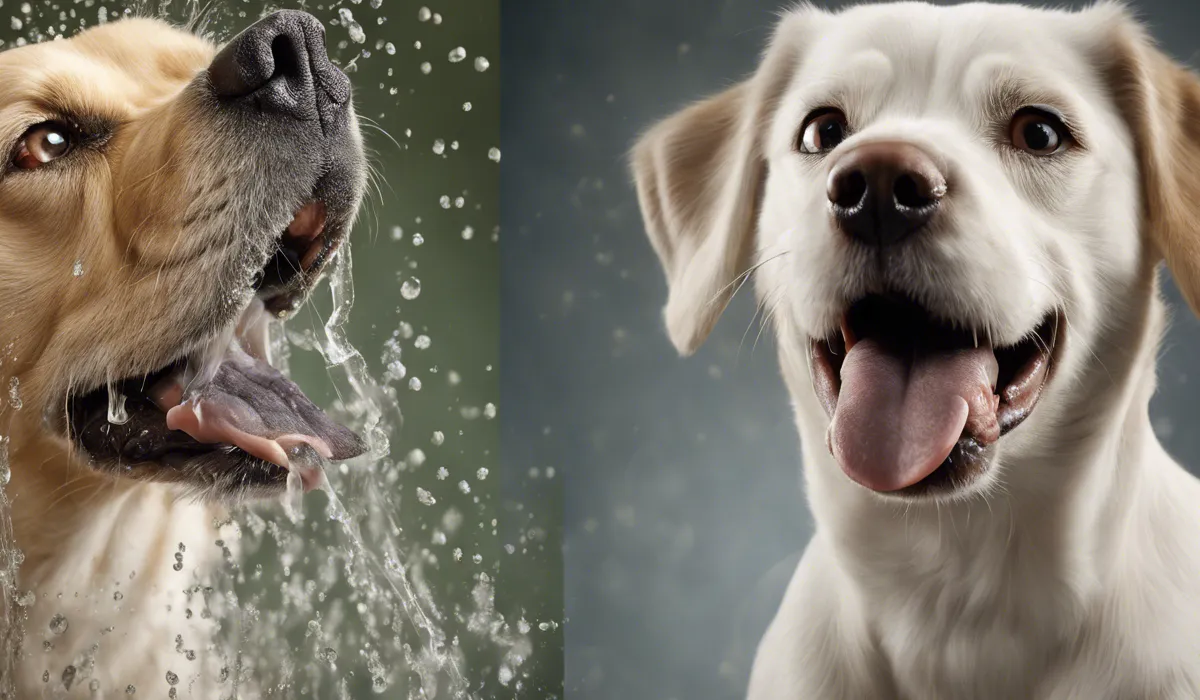Your dog may smell like mildew due to damp fur that hasn’t dried properly, leading to fungal growth. Frequent exposure to water without thorough drying, or an underlying skin condition, can exacerbate this issue. Ensure your dog is completely dried after baths or swims.
Causes of Mildew Smell in Dogs

Wet Dog Smell and Its Relation to Mildew Odor
When your dog comes in from the rain or after a fun swim, you might notice a distinctive smell often referred to as “wet dog smell.
” This odor arises when the natural bacteria on your dog’s skin mix with moisture. If your dog’s fur remains wet, this can create a perfect environment for mildew or mold to grow, which contributes to a musty, mildew-like smell.
Lack of Proper Drying After Baths or Swimming
After a bath or swim, it’s crucial to dry your dog thoroughly. Failing to do so can lead to damp fur, which is an ideal breeding ground for fungi, including those that cause mildew odor.
Pay special attention to the areas that take longer to dry, such as under the belly, around the ears, and between the toes.
Ear Infections Contributing to Musty Odors
Ear infections in dogs can produce a yeasty, musty odor. These infections are often caused by bacteria or yeast that thrive in warm, moist environments like a dog’s ear canal.
Regularly checking and cleaning your dog’s ears is essential for preventing infections and the associated smells.
Skin Conditions, Such as Yeast Infections
Several skin conditions can cause a dog to emit a mildew-like odor, with yeast infections being among the most common.
Yeast naturally exists on your dog’s skin, but when it grows out of control, it can cause an unpleasant smell.
Dogs with skin folds or those who are overweight are particularly susceptible to these infections.
Dental Issues Causing Bad Breath and Contributing to Overall Smell
Bad breath in dogs is not just unpleasant; it can also be a sign of dental issues, such as gum disease or tooth decay.
These dental problems can contribute to a general bad odor that might be mistaken for a mildew smell.
Environmental Factors, Like Damp Living Areas
The environment in which your dog lives can also contribute to the formation of mildew odors.
Damp living spaces, whether indoors or outdoors, can encourage the growth of mold and mildew, which can cling to your dog’s fur and be difficult to remove.
Prevention and Maintenance

Regular Grooming and Proper Drying Techniques
Regular grooming is essential for keeping your dog’s coat clean and free of odors. Proper drying techniques after bathing or swimming help prevent the growth of mildew.
Use absorbent towels or a pet-specific hairdryer to ensure your dog is completely dry.
Cleaning and Maintenance of Dog’s Living Space
Keep your dog’s living space clean and dry to reduce the risk of mildew odor. Regularly wash your dog’s bedding, and if possible, choose materials that resist moisture and discourage the growth of mildew.
Use of Dog-Specific, Mildew-Resistant Bedding
Invest in bedding designed for dogs that is resistant to mildew. Such bedding is typically made of materials that do not retain moisture and are easy to clean, helping to keep the sleeping area fresh and odor-free.
Importance of Ear Care and Regular Dental Checkups
Maintaining your dog’s ear health and scheduling regular dental checkups can prevent infections that cause odors. A vet can clean your dog’s teeth and provide advice on at-home dental care.
Diet and Its Role in Skin Health
A balanced diet is crucial for maintaining your dog’s skin health. Nutrient-rich foods support the skin’s natural defenses against yeast and bacteria, reducing the likelihood of infections that can cause odors.
Solutions for Dealing with Mildew Smell

Recommended Shampoos and Conditioners for Odor Control
There are specially formulated shampoos and conditioners designed to control odor in dogs.
Look for products that address the underlying causes of mildew smell, such as those with antifungal properties.
Home Remedies for Mildew Smell
Some home remedies can help neutralize mildew odor. For example, a rinse made with apple cider vinegar and water can act as a natural deodorizer.
Always test a small area first to ensure your dog’s skin does not react negatively.
Professional Grooming Services and Their Benefits
Professional groomers are trained to handle odors and skin conditions. They have the tools and expertise to thoroughly clean and dry your dog, which can help eliminate mildew smell.
When to Consult a Veterinarian for Underlying Health Issues?
If you’ve tried various solutions and the mildew smell persists, it’s time to consult a veterinarian.
They can diagnose and treat any underlying health issues that may be contributing to the odor.
Products for Maintaining a Fresh-Smelling Environment
There are products available that can help maintain a fresh-smelling environment for your dog.
Air purifiers, dehumidifiers, and odor neutralizers can all play a role in keeping your home smelling clean.
FAQs About Why Does My Dog Smell Like Mildew
Why does my dog smell musty even after a bath?
Your dog may still smell musty after a bath if their fur has not been dried thoroughly, creating an environment where mildew can grow.
Can a dog’s mildew smell be due to a skin condition?
Yes, an underlying skin condition could be causing your dog to smell like mildew due to issues like yeast infections or bacterial overgrowth.
How do I prevent my dog from smelling like mildew after swimming?
Prevent mildew smell by thoroughly drying your dog’s fur with towels and/or a blow dryer after swimming, making sure no dampness remains.
Is it normal for my dog to smell like mildew after playing in water?
It’s not uncommon for dogs to smell like mildew after being in water, but it’s important to dry them off completely to prevent fungal growth.
What can I do if my dog’s mildew smell persists despite regular drying?
If the mildew smell persists, consult a veterinarian to rule out any potential health issues and discuss proper grooming and skin care.
Final Thoughts
A dog’s mildew odor often stems from damp fur, which fosters fungal growth if not dried adequately.
This issue may be more prevalent in dogs that frequently get wet and are not thoroughly dried afterward, or in those with skin conditions that promote such smells.
Proper drying post-bathing or swimming is critical to prevent this odor.
